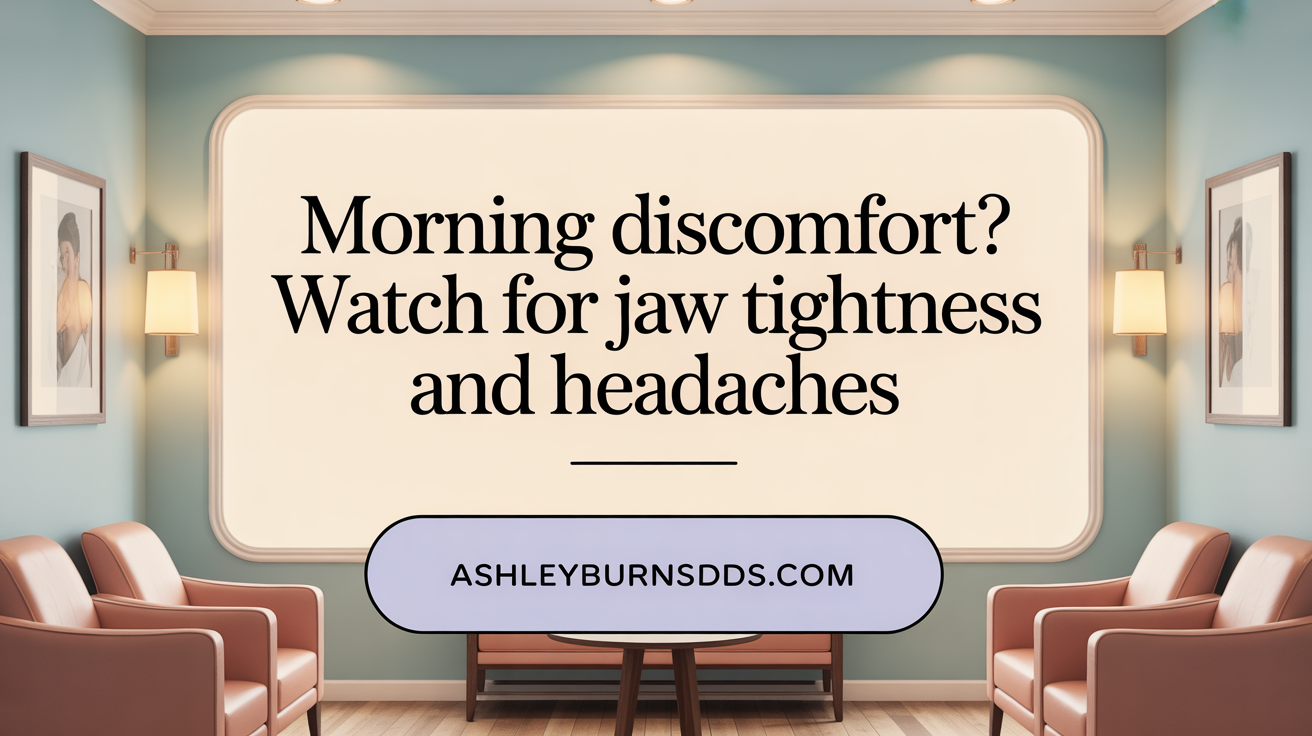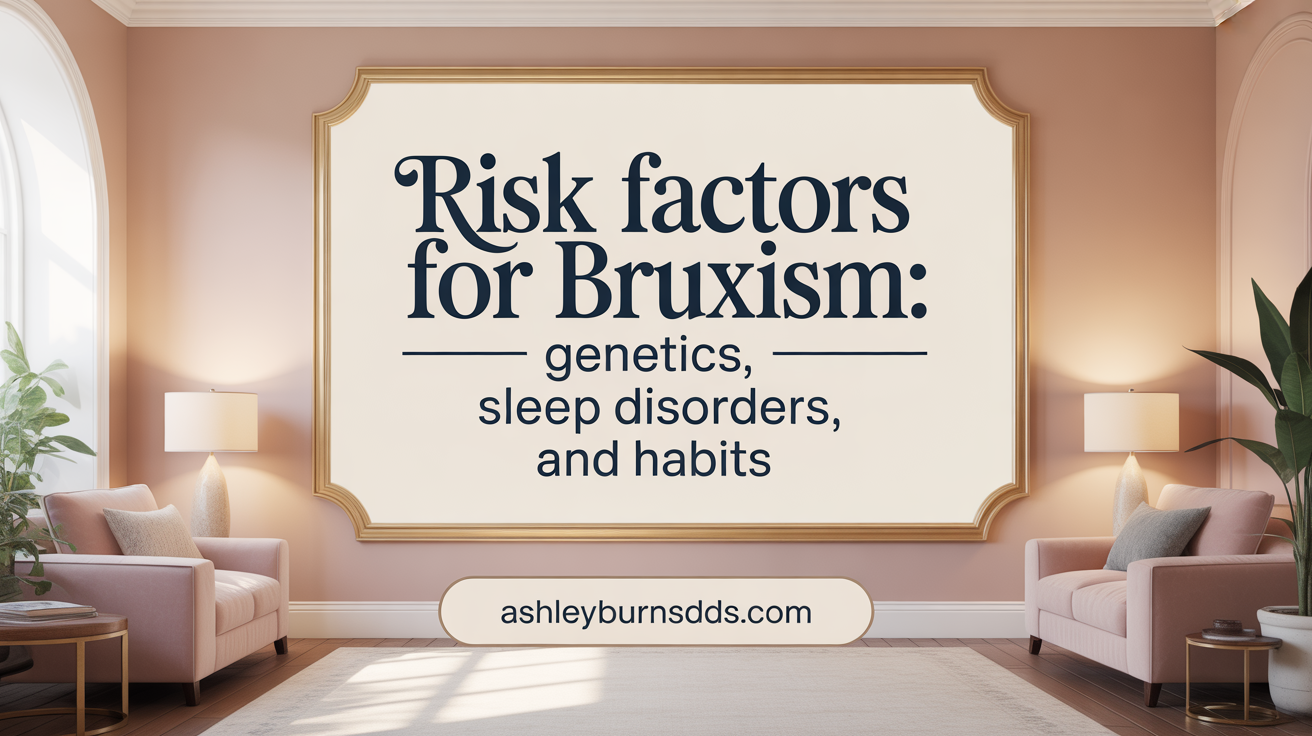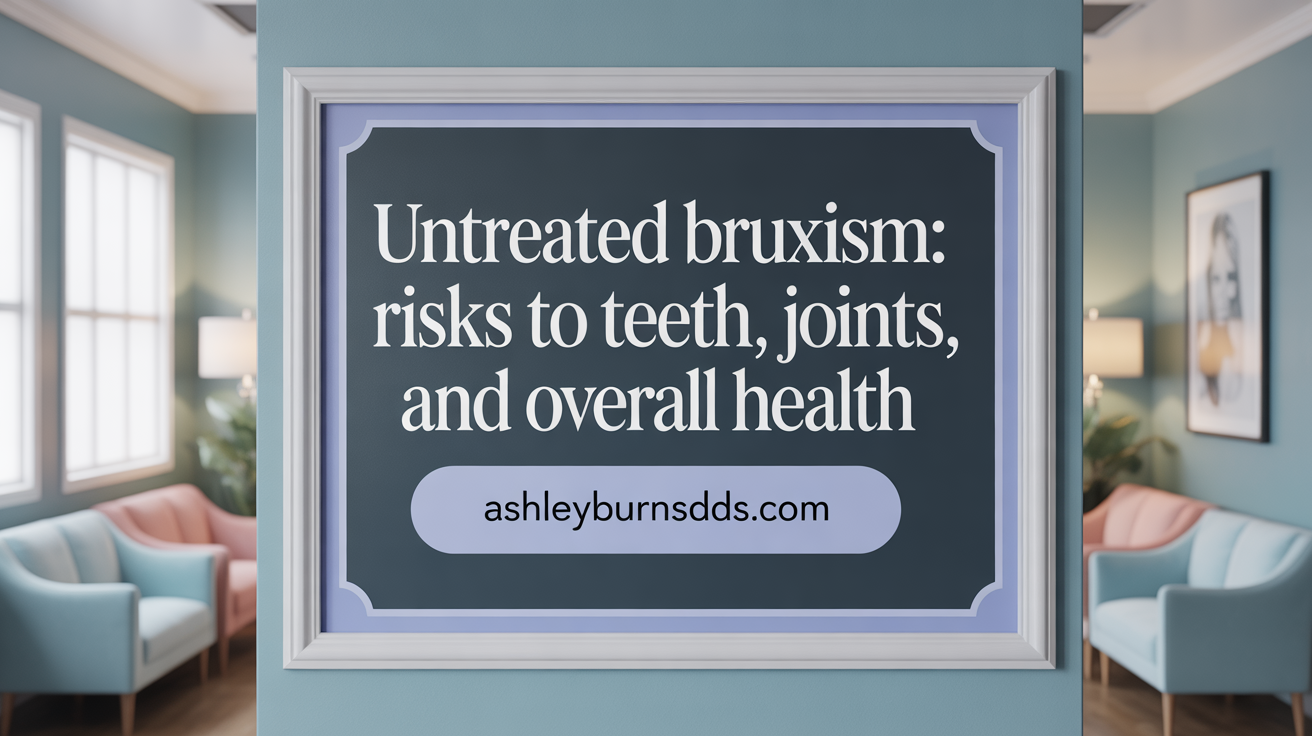What Is Bruxism and Why Should You Care?
Teeth grinding, medically known as bruxism, is a common yet often unnoticed condition characterized by the involuntary clenching or grinding of teeth. It can happen while you are awake or asleep, with nighttime grinding posing particular risks due to its unconscious nature. Understanding this condition, its causes, symptoms, diagnosis, and treatments is essential to prevent serious dental and health consequences. This article will guide you through everything you need to know to recognize and manage bruxism effectively.
Recognizing the Signs and Symptoms of Nighttime Teeth Grinding

What are the common symptoms and signs of nighttime teeth grinding?
Nighttime bruxism, or teeth grinding, often presents through a range of observable and felt symptoms. One of the most notable signs is the presence of worn or damaged tooth enamel, which may be visible during dental checkups. Many individuals experience increased sensitivity to hot, cold, or sweet foods because the enamel has been eroded.
Chipped, cracked, or even loose teeth are common in severe cases. People often wake up with jaw soreness, muscle tightness, or fatigue, which may be accompanied by headaches or facial pain, especially around the temples and jaw area. Some report earaches or a sensation of fullness, which can be mistaken for ear infections.
Beyond physical discomfort, audible grinding noises during sleep are frequently noted by bed partners, who may hear the squeaking or gnashing sounds. Others may notice morning discomfort, including tired or tight jaw muscles, and sometimes, small indentations or calluses inside the cheeks caused by biting.
Additional indicators include visible indentations on the tongue and raised tissue inside the cheeks caused by repetitive biting movements. In some cases, tiny pieces of enamel may break off, which can be observed in the mouth. This combination of physical and auditory signs helps in recognizing nocturnal teeth grinding and indicates the need for professional evaluation.
Exploring Causes and Risk Factors Behind Teeth Grinding

What are the main causes and risk factors associated with teeth grinding at night?
Teeth grinding during sleep, known as sleep bruxism, involves a complex combination of physical, mental, and genetic factors. While the exact cause remains uncertain, several common contributors have been identified.
One of the primary influences is stress and emotional states such as anxiety, anger, frustration, or tension. These factors tend to increase the likelihood of bruxism during both daytime and nighttime. People experiencing high stress levels often unconsciously grind or clench their teeth as a physical response.
Medical conditions also play a significant role. Sleep bruxism has been linked to disorders like obstructive sleep apnea, a condition characterized by pauses in breathing during sleep, and gastroesophageal reflux disease, which can cause discomfort and trigger clenching. Additionally, neurological disorders such as Parkinson’s disease or ADHD have been associated with increased risk.
Lifestyle choices contribute as well. Habits such as excessive alcohol consumption, high caffeine intake, and smoking are known to elevate the chances of developing bruxism. Certain medications, including selective serotonin reuptake inhibitors (SSRIs), stimulants, or recreational drugs, can also promote teeth grinding.
Genetics are an important factor. Studies suggest that a family history of bruxism increases the likelihood of experiencing sleep-related teeth grinding. This hereditary component indicates that genetic predisposition influences individual vulnerability.
Overall, the causes of bruxism involve a blend of lifestyle, medical, emotional, and genetic factors, making prevention and management complex but attainable through comprehensive approaches.
The Impact of Untreated Bruxism on Oral and Overall Health

What health problems can result from untreated teeth grinding?
When bruxism goes unaddressed, it can cause serious health issues that affect both dental health and overall well-being.
One of the most immediate concerns is dental damage. Bruxism can wear down tooth enamel, leading to increased tooth sensitivity and a higher risk of cavities. Severe grinding may also cause chipped, cracked, or fractured teeth, which might require complex dental repairs such as crowns or veneers.
Apart from teeth, the joints involved in jaw movement—called the temporomandibular joints—can develop disorders (TMJ). This condition presents as persistent jaw pain, clicking or popping sounds, swelling, and limited jaw mobility, often making daily activities uncomfortable.
Chronic headaches are common in individuals with untreated bruxism. These headaches often originate at the temple region and can persist throughout the day, accompanied by facial pain and muscle strain in the jaw, neck, and shoulders.
Sleep issues are also prevalent. As bruxism can cause sleep disturbances, sufferers may experience poor sleep quality, leading to daytime fatigue and reduced alertness. The tense muscles in the face and neck may further exacerbate muscle fatigue and discomfort.
Long-term, the combination of dental damage, joint stress, and sleep disruption can significantly diminish quality of life. Addressing bruxism early with appropriate treatment can prevent these complications and help maintain oral and overall health.
To understand more about these health consequences, searching
How Health Professionals Diagnose Bruxism
How is bruxism diagnosed by healthcare professionals?
Healthcare providers rely on a detailed process to diagnose bruxism. The diagnosis begins with a thorough patient history, where individuals are asked about symptoms such as jaw pain, headaches, or tooth sensitivity. Patients may also report waking up with jaw stiffness, earache-like discomfort, or noticing worn or damaged teeth.
Following the history, a physical examination is conducted. Dentists look for signs of tooth wear, chips, cracks, or loose teeth. They also check for tenderness or swelling in the jaw muscles and joints, as well as any clicking or popping sounds during jaw movement.
To further support the diagnosis, clinicians often use X-ray imaging to assess for underlying dental or jaw issues. Questionnaires about sleep quality, stress levels, and lifestyle habits may also be administered to identify contributing factors.
For suspected sleep bruxism, sleep studies (polysomnography) are valuable. These tests record involuntary grinding or clenching during sleep and can reveal associated sleep disorders such as sleep apnea. Some practitioners may employ electromyography (EMG) or special devices like BruxApp to monitor muscle activity and oral behaviors over time.
This comprehensive approach helps healthcare professionals confirm bruxism, estimate its severity, and determine appropriate treatment strategies.
Treatment and Natural Management Strategies for Teeth Grinding
What are effective treatments and prevention methods for teeth grinding?
Treating bruxism primarily involves protecting the teeth and reducing behaviors that cause damage. Custom night guards, made by your dentist, are highly effective as they cushion your teeth during sleep, preventing chips, cracks, and excessive wear. Dental correction procedures like reshaping or crowns may be necessary if substantial damage has occurred.
Beyond dental devices, behavioral therapies can significantly help. Stress management techniques, relaxation exercises, biofeedback, and habit awareness training aim to reduce the frequency and intensity of grinding.
Lifestyle modifications are crucial and include minimizing caffeine, alcohol, and tobacco, which can increase muscle tension and sleep disturbances. Good sleep hygiene—such as establishing a relaxing bedtime routine and addressing sleep disorders like sleep apnea—also prevents episodes of bruxism.
In some cases, medications like muscle relaxants or Botox injections are prescribed, but these are typically reserved for severe cases and have variable success.
A combined approach involving dental, behavioral, and medical strategies offers the best results for managing bruxism effectively.
How can one manage jaw clenching and teeth grinding during sleep naturally?
Natural methods for managing nighttime teeth grinding focus on relaxation and muscle easing. Practicing relaxation techniques such as meditation, deep breathing exercises, and yoga before bed can help reduce overall stress, which is a common trigger.
Jaw exercises can strengthen muscles and decrease tension; for example, gently placing your tongue on the roof of your mouth and opening your mouth wide can promote relaxation.
Applying warm compresses to the jaw muscles before sleep can soothe tension and increase comfort. Maintaining good sleep habits—like going to bed at the same time every night, avoiding screens before sleep, and creating a cool, dark, quiet sleeping environment—supports restful sleep and diminishes grinding episodes.
Avoiding stimulants such as caffeine and alcohol in the evening also improves sleep quality and lessens muscle activity related to bruxism. Ensuring adequate hydration and consuming magnesium-rich foods may help relax muscles involved in clenching.
While natural approaches can be beneficial, if grinding persists, consulting with a dental professional for the possibility of a custom night guard can offer additional protection and relief.
Taking Action to Protect Your Smile and Health
Nighttime teeth grinding is a widespread condition that often goes unnoticed until symptoms become severe or dental damage is evident. Recognizing the signs early and understanding the possible causes and health risks enables you to seek appropriate diagnosis and effective treatment. Whether through dental appliances, stress reduction, lifestyle changes, or natural management techniques, addressing bruxism can prevent lasting damage and improve your overall quality of life. If you suspect that you are grinding your teeth at night, consulting with a healthcare professional or dentist is the first crucial step towards safeguarding your dental health and wellbeing.
References
- Teeth grinding (bruxism) - Symptoms and causes - Mayo Clinic
- Bruxism | National Institute of Dental & Craniofacial Research
- Teeth grinding (bruxism) - NHS
- Are You Grinding Your Teeth? Here's Why You Should Stop
- How to Tell If You Need a Mouth Guard for Teeth Grinding (Bruxism)
- Bruxism: MedlinePlus Medical Encyclopedia
- Do You Grind Your Teeth? Here's How to Protect Your Smile
- How to stop grinding teeth at night? Before it's too late
- Teeth Grinding 101 - How to Spot it (and stop it)
- Bruxism: Causes and Symptoms of Teeth Grinding and Jaw Clenching
